What we do
Jardim do Mira promotes and develops activities and actions to improve biodiversity and environmental regeneration since 2019. Land adjustments include placing eucalyptus logs along contour lines and adding mulch to slow water runoff and reduce erosion. Our goal is to restore the degraded plantage, as well as protecting wetlands and forests.
It acts through a non-profit association for creating harmonious ecosystems.
Why we do it
We care for a 175,000 m² area, with nearly two-thirds previously used for Eucalyptus monoculture, a practice introduced in Portugal due to the tree’s rapid growth and demand in the paper industry.
Our passion is revitalising this land, working closely with locals to explore and implement best practices. In recent years, not only has greenhouse agriculture greatly expanded in the area of the nature park, but so has the risk of fire.
Where we are
Located along the river Mira in Parque Natural do Sudoeste Alentejano e Costa Vicentina, a nature park in southwest Portugal, the area is known for its rich biodiversity and scenic landscapes.
The Mira region as a whole is an important protected area of the Portuguese coast, home to endangered species and diverse ecosystems, and offers a unique opportunity for integrated protection.
Give back Forest

Balancing Resources
In 2019, we introduced horses to holistically graze and improve the ecosystem. Their manure greatly benefited the soil, and within two years, the lowlands visibly transformed with new herbs, flowers, bushes, and grasses. However, the horses’ water needs—30-50 liters daily—proved unsustainable in our water-scarce environment, highlighting the need for better water management.
This realisation led us to simpler solutions, such as inviting a local shepherd to graze his herd under supervision. This gentle approach not only helps restore the land but also strengthens our connection with the local community.
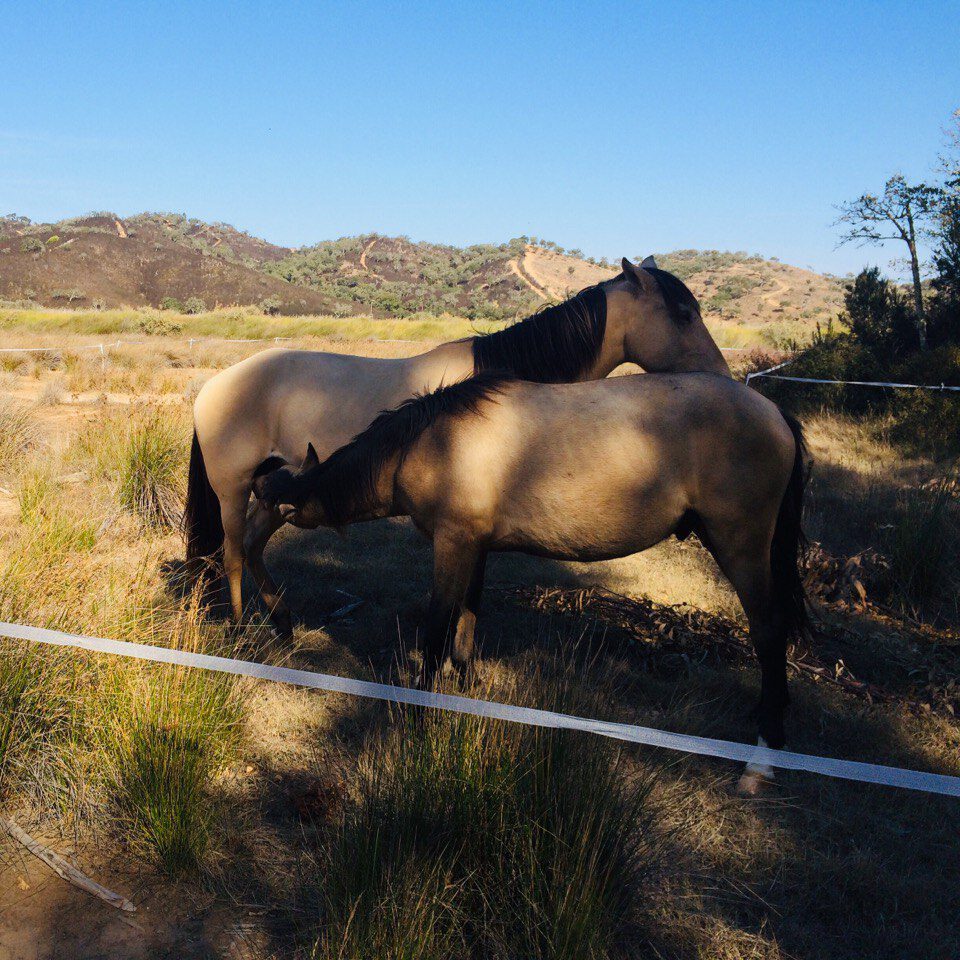
Research and Data
The 2022 Forest Documentation, part of a European Master’s fieldwork programme at HNEE University for Sustainable Development, investigates JDM’s forest ecology, soil, and climate. Guided by the faculty’s motto, “To learn from the forest – To teach, research, and act for the benefit of the forest“.
The 2023 Erasmus Post Master Trainee exchange with University Greifswald which was a deep dive into the Mira river, the only large river in Portugal with its entire estuarine section located within a protected area, highlighting its significant conservation value. This research lead to a ‘Foodweb Game’ for the Mira Region, an educational tool to be published in 2025.

Biodiversity Restoration
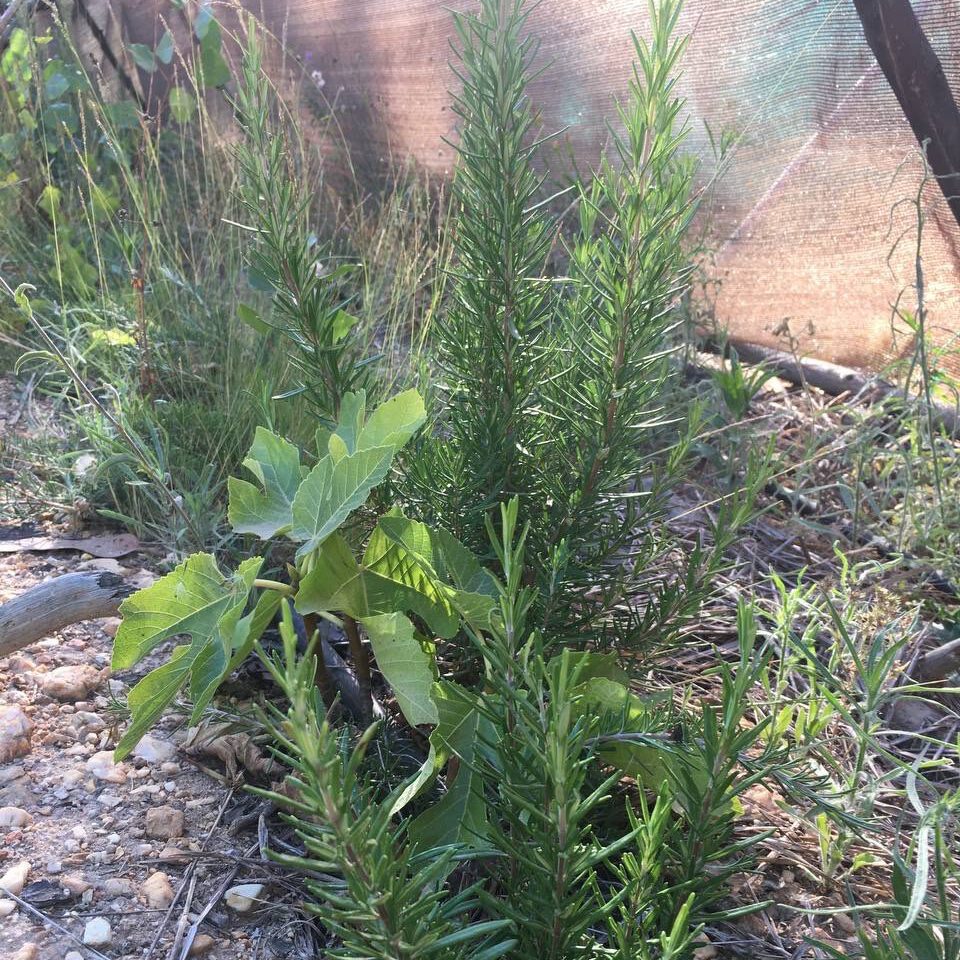
Local Actions

Governance and Learning
Sociocracy 3.0 principles guide our decision-making with a focus on inclusivity, transparency, and continuous improvement and to ensure all voices are heard and valued. Practising Sociocracy is now integral to our organisational development. We actively invite and listen to the Voice of Nature during our processes, fostering unexpected and deep understanding.

Collaborations
Build Your Own Cabin: In collaboration with Common Knowledge Ireland, we held a Build School Edition focused on green-wood construction using eucalyptus timber. Why eucalyptus? It was introduced and grows predominantly in monocultures, its oil makes it highly flammable. Removing it helps restore native habitats, reduces fire risks, and rebalances ecosystems. Download the Toolkit for this course HERE for free and please share with others.
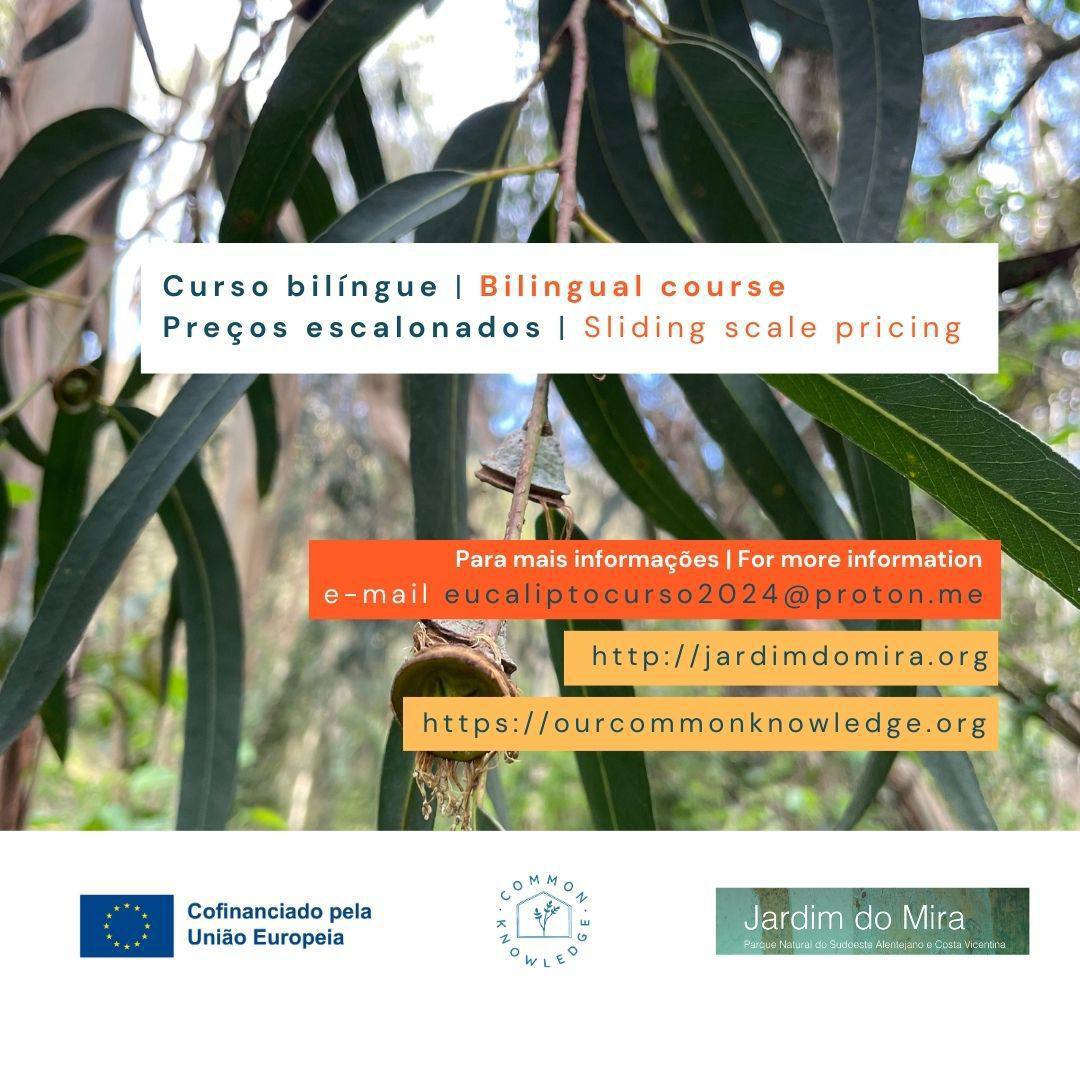
Local Food Resiliance
Join us at Escola Primaria Algoceira, Odemira as we continue building food culture and resilience with a cosy market, workshops on Fermentation, Effective Microorganism and topics that move us. After a summer pause starting again in October, every 2nd Sunday, every other month, enjoy live music, local organic and artisanal products, and outdoor cinema. If it rains, the market moves inside the hall, and the cinema takes place in the old school room.
Want to get involved? Reach out mercadomira@protonmail.com
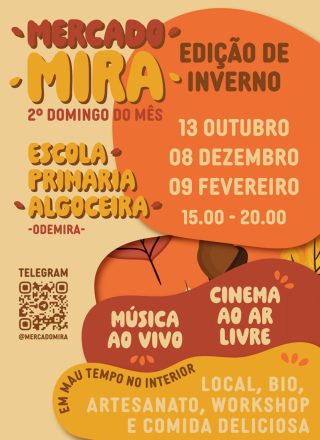
Nature-based Education
Our goal is to educate future generations about sustainable living and cultivating a deep connection with the natural world. Our association offers a daily playgroup for our members preschool children to engage with nature through an outdoor playground, forest trails, a permaculture kids’ garden, and a tree nursery. Rooted in Montessori principles, our approach fosters independence, curiosity, and respect for the environment. By blending playful, outdoor and hands-on experiences, problem-solving skills, and a love for nature that will guide their future growth and learning.
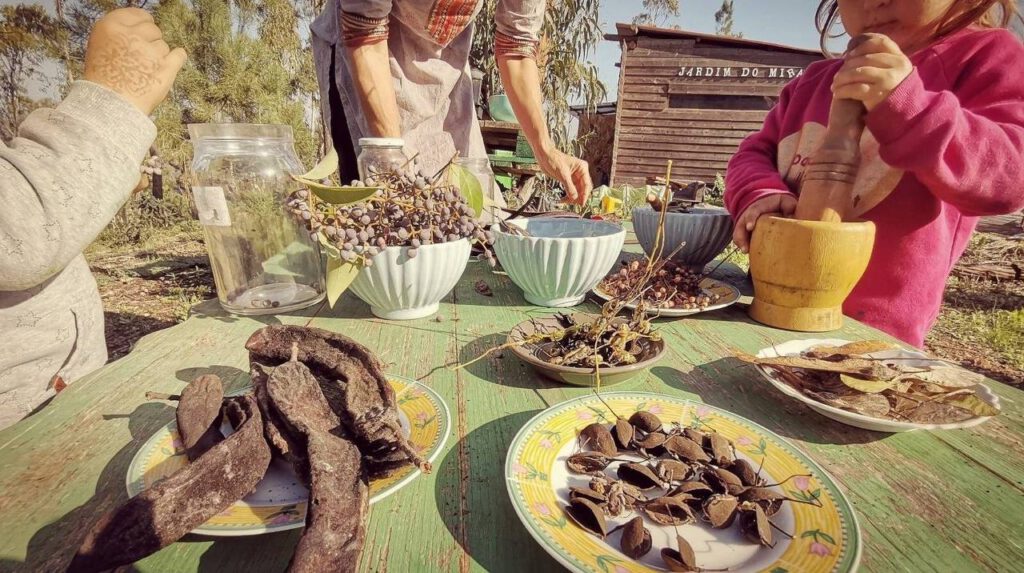
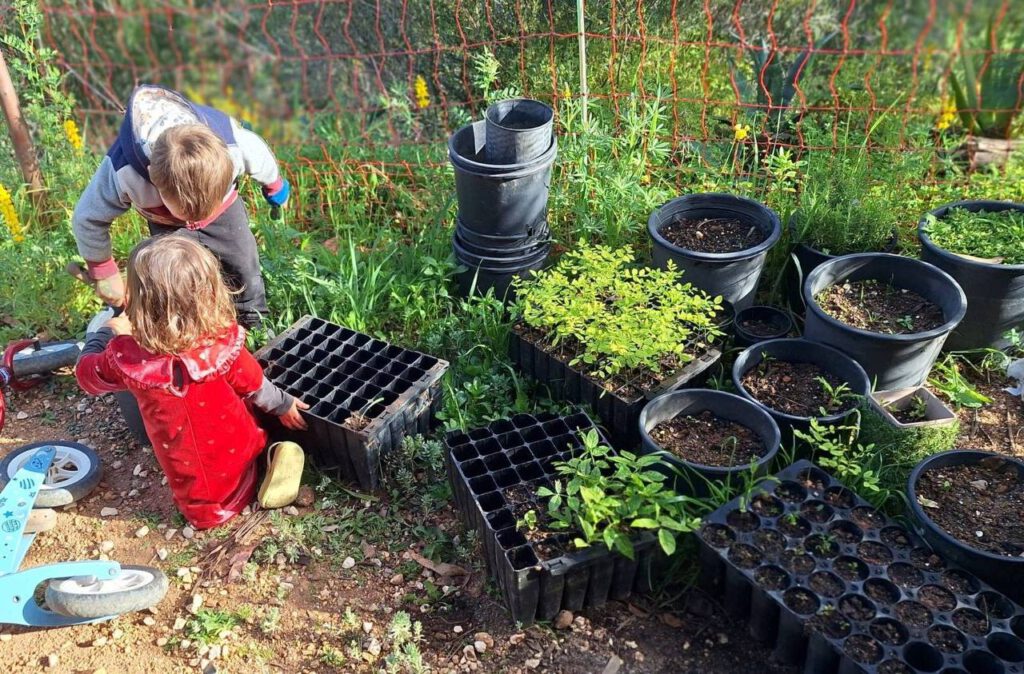
Time for Water – European Fellowship Programme Prototype 2023
Time for Future promotes regenerative futures through diverse residencies for researchers, entrepreneurs, professionals, employees, and artists. Participants live and work on site and collaborate with local communities, guided by local mentors, to address key challenges. The programme links these local projects with European and global issues, fostering regional expertise and knowledge exchange.
Since its 2021 launch, it has achieved significant outcomes in nature-based education, regenerative agriculture, water management, and ecological timber construction. Fellows address regional issues identified with local actors, conducting research followed by a prototyping phase, and receive a monthly stipend, living and working space, and access to tools and test fields.
The pilot which took place in the village Rothenklempenow, NE Germany, won the international RCE Award for innovative projects in Education for Sustainable Development (ESD) and expanded to Portugal in 2023.
The 2023 pilot at two partner locations focused on Water, ‘Time for Future ResidenZ – Water’ explored, researched and prototyped over 4 months. Very important was the exchange on the topic between the partner locations through dialogue and research evaluation seassions between German and Portuguese fellows.
David Rezende, Portugal
Trained permaculture practitioner, developed a practical water system with greywater filter for the Jardim do Mira project. His work considers the unique environment of the Alentejo Natural Park, aiming to establish a safe and benificial water management system.
Lisa Wendelborn and Thomas Bendt, Germany
Exploration of water and drought through sound. Their artistic focus examines the sounds of dryness and the impact of water on our landscapes, weaving stories through auditory experiences.
Artist and designer, spent two months at German partner location creatively addressing water scarcity. Through community participation and engagement, her photographic productions aim to evoke emotional and mental responses.



Exchange for Time for Future 2022
Taking time for the future is essential to achieve the Sustainable Development Goals and the UN Decade 2030 Ecosystem Restoration.
With Time for Future, Jardim do Mira has partnered with RCE Stettiner Haff (Szczecin Lagoon), engaging in an European exchange with the host regions and their networks.
In April 2022, RCE and Jardim do Mira organised an exchange in Portugal, with workshops and networking in Algoceira and Odemira. Participants shared knowledge on regional and sustainable development and showcased solutions from eco tourism like the hiking route ‘Rota Vicentina’ to emerging local food systems and markets like ‘Mercado Mira’.
In September 2022, Jardim do Mira representatives visited the German partner location during European Sustainability Week, participating in workshops, exploring local agriculture and forestry, and networking with RCE partners.
In the rural North East region of Germany, various development and educational formats have been implemented, including nature trails, landscape walks, Field rallies, and the ResidenZukunft – Time for Future fellowship programme.
The pilot, launched in 2021 in the village Rothenklempenow (NE Germany) and was awarded the International RCE Award by the United Nations University.
The Odemira region of Portugal faces similar challenges like the counterpart in rural Germany, youth migration and limited access to organic and sustainable agriculture. The expansion of industrial greenhouses for European fruit exports also threatens biodiversity and pollutes drinking water with chemical pesticides.
This exchange laid the foundations for future initiatives and enhanced the fellowship programme, benefiting both regions and their ecosystems.
Link – Invitation Intercâmbio Einladung ‘Time for Future’ 24-26.September 2022
Partners Portugal: Jardim do Mira, regeneration ° AM Algoceira e Vale do Bispo, Culture ° Wild Forest Garden (Skanking Farmers), regeneration ° Clara- Center for Rural Future, regeneration° Aldeias a Vista, market culture° Guardioes do Mira, education ° Terra Sintropica, regeneration° Rota Vincentina, Eco tourism° Tamera, Peace research and education ° Juntos pelo Sudoeste, Citizen movement° Food hub & Mercado Mira, market culture
Partners Germany: Regional centre for expertise, education° Höfegemeinschaft Pommern, agriculture° 2000m2 Global Field, education° Fint Collective, transformation coaching, graphhic recording° Naturpark Stettiner Haff, Conservation, education° Rewilding Oder Delta, conservation, education° Zukunftorte, Network of places of impact, regional development° Hodlwood, preserving orchard meadows° Theory U, guidance° ULab 2x, methodologies° European Climatepact Ambassador, research support
By becoming a supporter of Jardim do Mira, even a small monthly donation can make a huge difference! Here’s how your contributions will be spent:
Water Systems: We’re improving our irrigation to ensure young trees get the water they need.
Regenerative Farming: Your donation helps expand our agroforestry practices, combining crops and trees to restore the soil.
Wildlife Habitats: We’re working to create safe areas for local wildlife.
Community Engagement: Donations support initiatives like Mercado Mira, a market that brings together people of all ages and backgrounds, fostering a stronger sense of community.
Each donation helps us to heal the land!
Most recent collaboration `Towards a Global Field`
If we were to divide the total global surface area of arable land by the number of people living on the planet, each person would get 2000m² (half an acre), each person has around 2,000 m², which provides all our plant-based food—wheat, vegetables, coffee—and materials like cotton and soy. If managed well, this could feed everyone, even with just 1,500 m² per person by 2080. However, land use is uneven, with over 20% of food wasted. There is significant potential to improve resource management. At the Global Field, visitors see their share of the world’s farmland. A 2,000 m² plot in Europe grows 41 of the 55 main crops, highlighting their role in food, clothing, and energy production.
Since 2013, the Global Field project has expanded to 8 countries and 24 locations, promoting knowledge-sharing and collaboration. Establishing a Global Field in Portugal would offer an interactive exhibition and learning space, connecting global challenges with local solutions through workshops and events. Data Source: Food and Agriculture Organisation (FAO)
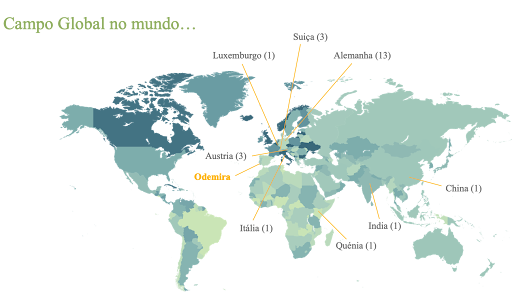
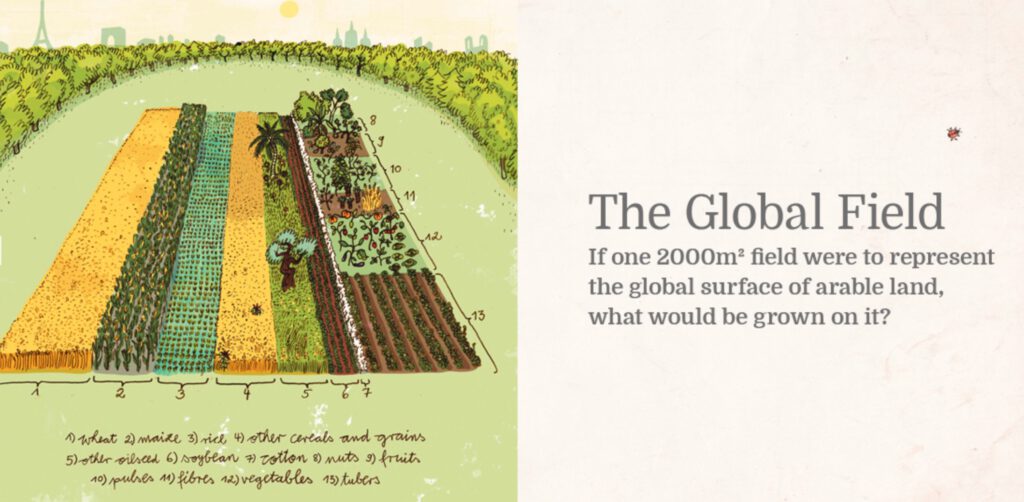
Following preliminary work and close collaboration with our German counterparts—originators of the 2,000m² Global Field concept— together with our partners from Project Earth (PT), RCE Stettiner Haff (DE) and Foundation for Future Farming (DE) we successfully contextualised this idea for Odemira in 2023, supported by the Erasmus+ program. After engaging with the municipal executives and securing a preliminary project site, we completed six thematic meetings with the continuous support from the mayor of Odemira. Since February 2024, a co-created comprehensive master plan with many stakeholders from our region as well as external experts has been developed. This plan covers all aspects from preparation to operation and financing.
2023 Video Diary: ‘Moving towards a Global Field 2000m2 Campo Global Odemira’

